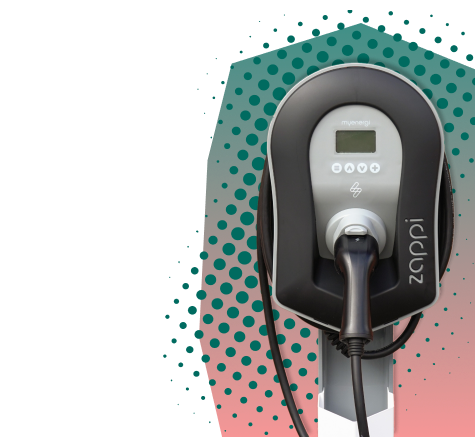The importance of data-specialized professionals
For companies to stay on top of data management and analysis, there is a vast pool of data-related roles that can be filled. The professionals working in the sector are experts in collecting, organizing, processing and analyzing information and provide valuable insights to other key figures within the company. Within data there are many roles that can be utilized but it might become a challenge for companies to seek adequate people, as well as distinguish properly between the different responsibilities each title comes with.
To make it a bit easier, here at Storm4 we prepared a detailed overview and comparison of different data and analytics roles and their key responsibilities.

Different Data Roles and their key responsibilities
As the name of a Chief Data Officer suggests, this role is an integral part of the C-suite. CDO’s love the data insights. Their ability to understand strategy, define and reduce pain and risks for the company has an impact on the overall business performance. It is them who determines what type of information the company will capture, retain and use, and for what purposes. CDO acts as a bridge between the technological results driven by the engineers, and the business results which are the most valuable to the C-Suite. They provide analytics that are supported by reports on products, customers, operations and the market that the company is operating in, including potential risks and opportunities and direct competition.
Chief Data Officer Key Responsibilities:
- Define and evolve the data strategy to assess risks and opportunities for the business
- Spark innovations that set the company against the competitors in the market by using data analytics
- Lead the design of the data architecture and develop a system to conduct analysis to give meaning to data
- Provide solutions that protect the company’s data from theft, corruption or interference of other parties as well as keep up with policies related to data
- Oversee data management, data science and analytics to help target customers and optimize supply chains to create value
- Lead, manage and motivate large technical teams
Drive organizational learning using data science and AI to automate decisions and actions and increase business efficiencies
 Another key figure in C-Suite, the range of responsibilities of a Chief Data Scientist differs from the one’s on Chief Data Officer menu. Although the data-to-business part is integral for both, CDS is more occupied with curating data modelling designs, artificial intelligence, and machine learning infrastructure. Just like Chief Data Officers they act as a bridge between the technical output and business outcomes, manage a range of data functions, oversee data management, and report the insights to the rest of C-Suite, but they’re much more of the “doers” of the technical side of things. CDO is the one who defines the needs, strategies and technicalities, and CDS is the one that will work on ensuring these are translated into tactical execution and measurable performance. CDS acts as a complementary role to the CDO, instead of a substitute. These two work together in order to provide the best data insights, that will have a real impact on the business performance of the company.
Another key figure in C-Suite, the range of responsibilities of a Chief Data Scientist differs from the one’s on Chief Data Officer menu. Although the data-to-business part is integral for both, CDS is more occupied with curating data modelling designs, artificial intelligence, and machine learning infrastructure. Just like Chief Data Officers they act as a bridge between the technical output and business outcomes, manage a range of data functions, oversee data management, and report the insights to the rest of C-Suite, but they’re much more of the “doers” of the technical side of things. CDO is the one who defines the needs, strategies and technicalities, and CDS is the one that will work on ensuring these are translated into tactical execution and measurable performance. CDS acts as a complementary role to the CDO, instead of a substitute. These two work together in order to provide the best data insights, that will have a real impact on the business performance of the company.
Chief Data Scientist Key Responsibilities:
- Identify and monitor business opportunities and risks to understand and recognize the data needs of the business
- Understanding the business scope to determine the best route to manipulate data
- Design data analytics models by employing the latest ai, machine learning infrastructure and leveraging data-sources
- Curate experimental data modelling designs to evaluate changes in the businesses products/services
- Navigating ethical concerns around machine learning and defining ways to mitigate them
- Leading innovation by showcasing additional value created from data insights and assets
The primary responsibility of the Director of Analytics is leading the data analytics and data gathering departments, overseeing all their activities, and ensuring those activities run in alignment with the business objectives of an organization. Individuals working this role need to organize the teams, technology, processes and resources necessary to assess the data-related needs. Director of Analytics is the person who understands the importance of information and data, and utilizes it as a key business asset. As the person responsible for managing the data teams, they drive the departmental culture and promote data-driven decision-making. They will usually report directly to CDO’s and CDS’, as well as the other members of the C-Suite. Because of that, the Directors of Analytics need to be highly collaborative, to act as a bridge between the Head of Data Science, the analysts, engineers, and the higher-ups.
Director of Analytics Key Responsibilities:
- Provide visibility and management of data-driven insights
- Support other teams in making strategic decisions regarding products, target customers and investments based on the data-driven insights
- Collaborate with other departments to ensue alignment of strategies and objectives
- Assess the commercial value, risks and opportunities for growth driven by data insights
- Stay in touch with the market and industry, news and practices in order to shape and nurture the data team
- Mentor data analytics personnel to constantly improve their professional skills and prepare them for future opportunities and challenges
 Although they may seem similar to the Director of Analytics, Head of Data Science’s primary responsibility is the creation of new data capabilities for the business to drive decision making and business performance. Head of Data Science designs and launches innovative and complex data analytics models, blending traditional and modern techniques of acquiring data, and apply them to both structured and unstructured data sets. If the Head of Analytics is the one responsible for giving value to the data, Head of Data Science is the one managing and providing it. Head of Data Science might manage the junior data science teams, ensuring the cohesion and accuracy of the work, but they also collaborate and coordinate cross-functional analytic initiatives.
Although they may seem similar to the Director of Analytics, Head of Data Science’s primary responsibility is the creation of new data capabilities for the business to drive decision making and business performance. Head of Data Science designs and launches innovative and complex data analytics models, blending traditional and modern techniques of acquiring data, and apply them to both structured and unstructured data sets. If the Head of Analytics is the one responsible for giving value to the data, Head of Data Science is the one managing and providing it. Head of Data Science might manage the junior data science teams, ensuring the cohesion and accuracy of the work, but they also collaborate and coordinate cross-functional analytic initiatives.
Head of Data Science Key Responsibilities:
- Define how data assets and analytics will add a value to the business, by utilizing analytics and driving innovation
- Manage the junior data science teams, overseeing all activities to ensure cohesion with business goals, strategies, and within individual departments
- Use new data sources and employing the latest machine learning infrastructure to ensure best performance
- Collaborate with other data and analytics teams to design big data applications
- Serve as a trusted advisor to the business
- Drive experimental data modelling designs, run tests to evaluate improvements in the business’ products/services
- Draft reports on departmental performance and present recommended models and strategies for approval
A Data Engineer’s primary focus is to analyzing raw data, develop and maintain datasets as well as improve data quality and efficiency. The engineers are the doers that improve the reliability of the datasets, gathering data through different sources and using it to build consistent and machine-readable formats. They are the ones helping with the development and testing of architectures and systems, and transform the data into predictive or prescriptive models. Data Engineers utilize programming languages and knowledge of learning machine methods to support the higher-ups with the most accurate insights driven by the data.
Data Engineer Key Responsibilities:
- Develop, construct, test and nurture architectures that align with business objectives
- Develop data set processes and use programming languages to identify ways to improve data reliability, efficiency and quality
- Use large data sets to address business issues as well as finding hidden patterns
- Track pipeline stability, ensuring automated parts are monitored and modified as data models and requirements change
- Stay in the loop of industry news to identify any market opportunities or gain competitive leverage
At Storm4, we pride ourselves on working with some of the leading talent in data and analytics sector to accelerate the change to a green and sustainable future. If you’re currently looking for a new opportunity in that department, or looking to supply your data and analytics team with new, influential figures – take a look at our specialisms and sectors pages and reach out to us.











